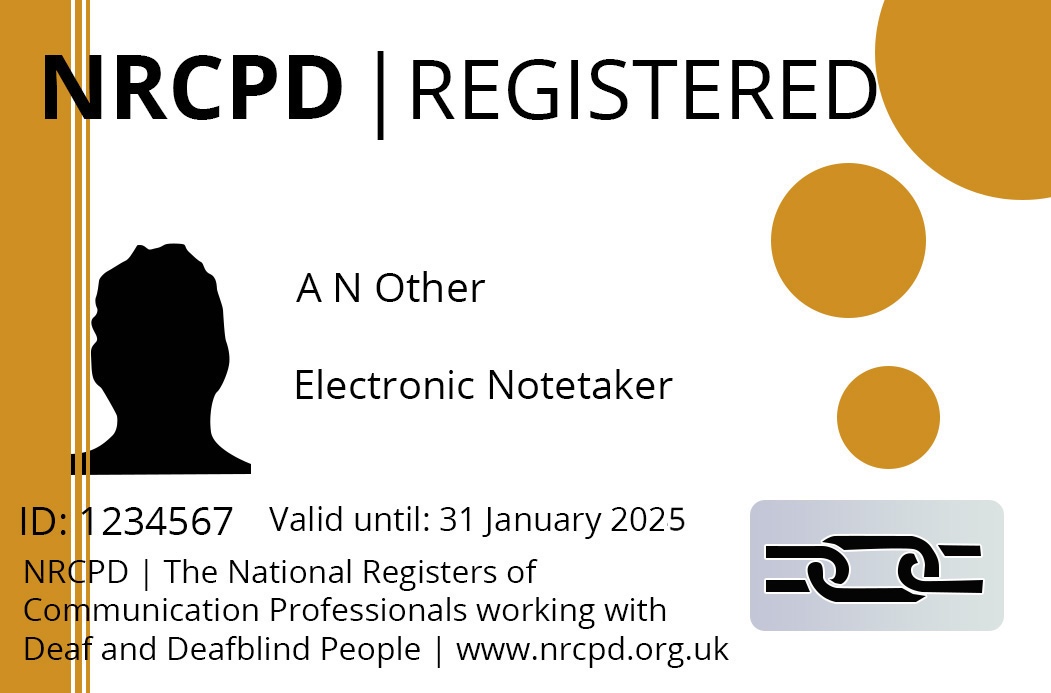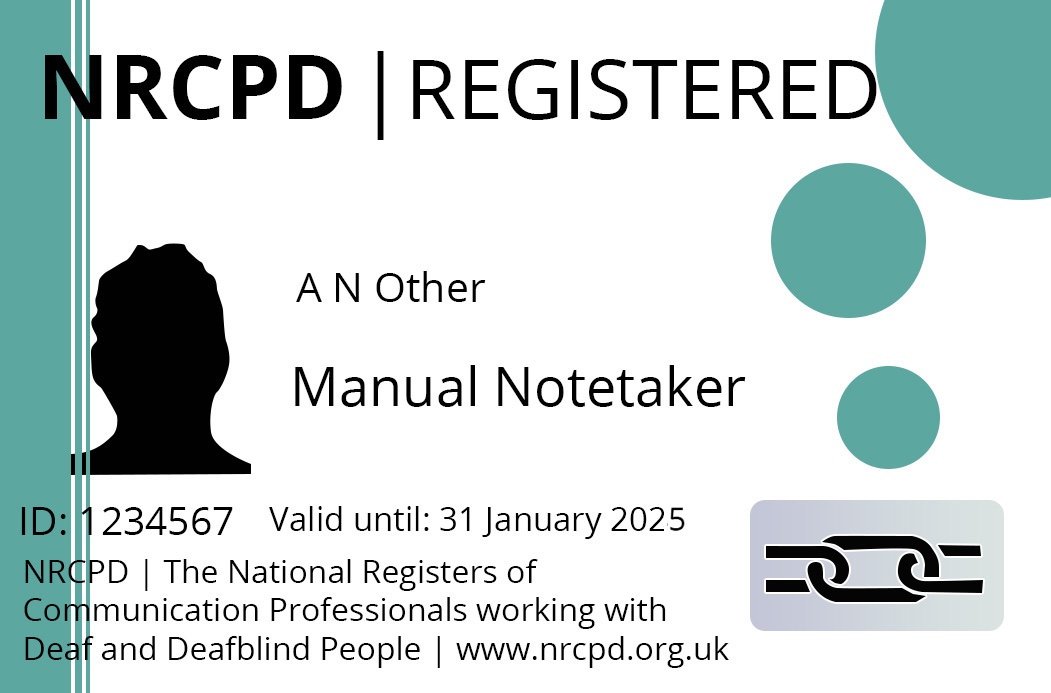Menu
Notetakers produce a set of notes for people who can’t take their own because they are lipreading the speaker or watching a Lipspeaker/Sign Language Interpreter. They’re most common in schools, colleges and universities, but are also used at work, on training courses and at other events.
There are two different types of notetaker, Electronic and Manual.
Electronic notetakers take notes on a laptop. The operator types a summary of what’s being said into the computer and the text appears on the user’s screen. This allows the user to interact with the operator and add their own notes. It’s up to the user, not the notetaker, to decide what they want to keep. Or they can just take notes directly on their own laptop and pass them over to the user afterwards.
Note: Electronic notetaking doesn’t produce a full verbatim (word for word) account of what’s been said. If this is what you need, you should use a speech-to-text reporting service.
Photo credit: Rachel Tomlinson ENT & Louisa McDaid ENT
A manual notetaker usually takes notes on paper. They are trained to take clear notes in handwritten English – they’re often used in educational settings.


All of our Notetakers are qualified and registered with The National Registers of Communication Professionals working with Deaf and Deafblind People (NRCDP). They follow a Code of Conduct, have an up to date Disclosure and Barring Service (DBS), hold Professional Indemnity Insurance (PII) and are subject to a complaints procedure.
When making a booking please provide the following:
